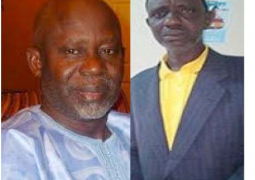Stakeholders in the education sector drawn from different parts of the Central River Region recently gathered at the Regional Education conference hall in Janjanbureh for a one-day sensitisation on the popularisation of special needs education and inclusive policy framework.
Speaking on the occasion, Anna Nancy Mendy, Head of Special Needs Unit under the Ministry of Basic and Secondary Education, stated that education policy aims to respond to the diverse needs of children in The Gambia.
The integration of special children into regular schools would help children to fuse well, with appropriate supportive services, she noted.
According to her, the 2004 - 2015 education and inclusive policy framework covers international legal framework that advocates for the rights of persons with disabilities.
This includes the 1948 Universal Declaration of Human Rights, the 1971 General Assembly Resolution on the declaration on the rights of mentally retarded persons and the 1975 declaration on the rights of disabled persons.
Madam Mendy noted that the Constitution of The Gambia clearly states in section 30 the rights of children to be educated, while section 31 caters also for the rights of people with disabilities.
For his part, Mamadou Katim Touray, Regional Education Director, Region five, underscored the importance of education.
Children with special needs have right to education and parents or guardians that have these children must send them to school, he says.
“Section 18 of the Constitution obligates every parent or guardian to ensure their children or ward complete basic education,” he said.
Mr Touray urged members of mother clubs to engage in one-to-one discussion in spreading the gospel message of children’s right to education to the grassroots level for the benefit of children with disabilities.
Karamo Keita, a social worker, highlighted some of the challenges in implementing the inclusive Education for All for children.
He said all special needs schools are located in the urban and semi-urban areas and have inadequate resources, with unavailability of an operation policy on special needs at national, school and other services delivery level.




